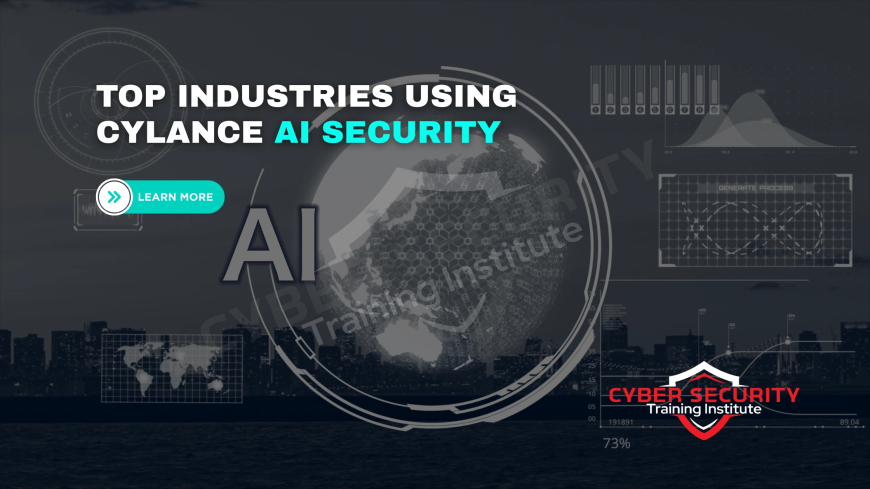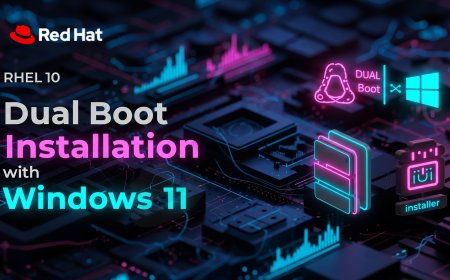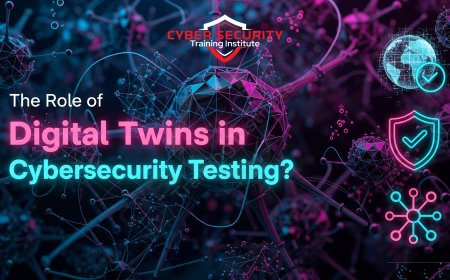What Industries Benefit the Most From AI Cybersecurity Tools Like Cylance?
In today’s digital age, cyber threats are evolving faster than ever. From ransomware attacks to sophisticated phishing schemes, businesses across all sectors face constant risks. Traditional cybersecurity methods, like firewalls and antivirus software, are struggling to keep up with these advanced threats. Enter AI-powered cybersecurity tools like Cylance, which use artificial intelligence to predict, detect, and prevent cyberattacks before they cause harm. These tools are revolutionizing how industries protect their data, systems, and customers. But which industries benefit the most from AI cybersecurity solutions like Cylance? In this blog post, we’ll explore the top industries leveraging these tools, why they need them, and how AI is transforming their security landscape.

Table of Contents
- Introduction
- Why AI Cybersecurity Matters
- Industries Benefiting the Most
- Healthcare
- Finance
- Retail and E-Commerce
- Government and Public Sector
- Manufacturing
- Education
- Comparison of AI Cybersecurity Needs by Industry
- How Tools Like Cylance Work
- Benefits of AI Cybersecurity Tools
- Challenges and Considerations
- Conclusion
- Frequently Asked Questions
Introduction
Cybersecurity is no longer just an IT issue—it’s a business necessity. As cyberattacks grow in frequency and complexity, industries handling sensitive data or critical operations are turning to AI-driven solutions like Cylance. Unlike traditional tools that rely on known threat signatures, AI cybersecurity uses machine learning to identify patterns and predict potential attacks. This proactive approach is a game-changer for industries where a single breach can lead to financial loss, reputational damage, or even legal consequences. Let’s dive into why AI cybersecurity matters and which sectors are reaping its benefits.
Why AI Cybersecurity Matters
AI cybersecurity tools, like Cylance, analyze vast amounts of data in real time to detect anomalies and stop threats before they strike. Traditional methods often lag behind because they depend on updates to recognize new threats. AI, on the other hand, learns from data and adapts to new attack patterns without constant human intervention. This makes it ideal for industries with high-stakes data or complex systems. Below, we explore the industries that benefit most from these tools and why.
Industries Benefiting the Most
While AI cybersecurity tools can benefit nearly any sector, some industries stand out due to their unique challenges and high risk of cyberattacks. Here are the top industries leveraging tools like Cylance:
Healthcare
The healthcare industry is a prime target for cybercriminals due to the sensitive nature of patient data. Medical records, insurance details, and payment information are stored in electronic health record (EHR) systems, making hospitals and clinics vulnerable to ransomware and data breaches. AI tools like Cylance help by:
- Detecting unusual access patterns to patient data.
- Preventing ransomware from locking critical systems.
- Ensuring compliance with regulations like HIPAA.
For example, a hospital using Cylance can stop a phishing attack that tries to steal patient records before it spreads, saving both money and trust.
Finance
Banks, credit unions, and fintech companies handle vast amounts of financial data, making them magnets for hackers. From credit card fraud to insider threats, the financial sector faces constant risks. AI cybersecurity tools excel here by:
- Monitoring transactions for fraudulent activity in real time.
- Identifying malware that targets banking systems.
- Protecting customer data during online banking sessions.
Cylance’s predictive capabilities can flag suspicious transactions before they’re processed, reducing losses and maintaining customer confidence.
Retail and E-Commerce
Retail and e-commerce businesses store customer payment information and personal details, making them targets for data breaches. With the rise of online shopping, cyber threats like skimming and credential stuffing are common. AI tools help by:
- Securing payment gateways from attacks.
- Detecting fake accounts created by bots.
- Protecting customer loyalty programs from exploitation.
For instance, an e-commerce platform using Cylance can prevent a bot from stealing customer credentials, ensuring a safe shopping experience.
Government and Public Sector
Government agencies manage critical infrastructure and sensitive citizen data, making them targets for state-sponsored attacks and espionage. AI cybersecurity tools are vital for:
- Protecting classified information from leaks.
- Securing public services like tax systems or voting platforms.
- Detecting advanced persistent threats (APTs) that target government networks.
Cylance’s ability to analyze network traffic helps governments stay ahead of sophisticated threats, ensuring national security.
Manufacturing
The manufacturing sector is increasingly digitized, with smart factories relying on interconnected devices (IoT). This creates vulnerabilities to cyberattacks that can disrupt production or steal trade secrets. AI tools like Cylance assist by:
- Monitoring IoT devices for unusual behavior.
- Preventing ransomware from halting production lines.
- Protecting intellectual property from theft.
A factory using Cylance can stop a malware attack on its robotic assembly line, avoiding costly downtime.
Education
Schools, universities, and edtech platforms store student data and research, making them targets for ransomware and phishing. AI cybersecurity tools help by:
- Securing online learning platforms from intrusions.
- Protecting student records from unauthorized access.
- Detecting phishing emails targeting faculty or students.
Cylance can identify a ransomware attack on a university’s servers and block it before files are encrypted, ensuring uninterrupted education.
Comparison of AI Cybersecurity Needs by Industry
| Industry | Primary Threats | How AI Helps |
|---|---|---|
| Healthcare | Ransomware, Data Breaches | Detects anomalies, ensures HIPAA compliance |
| Finance | Fraud, Malware | Monitors transactions, flags suspicious activity |
| Retail/E-Commerce | Skimming, Credential Stuffing | Secures payment systems, detects bots |
| Government | APTs, Espionage | Protects classified data, secures infrastructure |
| Manufacturing | IoT Attacks, Ransomware | Monitors IoT, prevents production downtime |
| Education | Phishing, Ransomware | Secures platforms, protects student data |
How Tools Like Cylance Work
Cylance uses machine learning to analyze files and network behavior, predicting whether they’re malicious before they execute. Unlike traditional antivirus software that checks files against a database of known threats, Cylance examines file characteristics and behavior patterns. This allows it to stop zero-day attacks—new threats that haven’t been seen before. It also uses minimal system resources, making it ideal for industries with large-scale operations.
Benefits of AI Cybersecurity Tools
- Proactive Threat Detection: AI identifies threats before they cause damage.
- Reduced False Positives: Machine learning minimizes unnecessary alerts, saving time.
- Scalability: AI tools handle large volumes of data, perfect for industries with complex systems.
- Cost Efficiency: Preventing breaches saves money compared to recovery costs.
Challenges and Considerations
While AI cybersecurity tools are powerful, they’re not without challenges. Implementing them requires:
- Skilled Staff: Teams need training to manage AI tools effectively.
- Integration: AI must work with existing systems, which can be complex.
- Data Privacy: Industries like healthcare must ensure AI tools comply with regulations.
Despite these challenges, the benefits outweigh the hurdles for most industries.
Conclusion
AI cybersecurity tools like Cylance are transforming how industries protect themselves from cyber threats. Healthcare, finance, retail, government, manufacturing, and education are among the top sectors benefiting from these tools due to their sensitive data and critical operations. By using machine learning to predict and prevent attacks, AI solutions offer a proactive approach that traditional methods can’t match. While challenges like integration and training exist, the scalability, efficiency, and protection offered by AI make it a must-have for any industry facing modern cyber risks. As threats continue to evolve, adopting AI cybersecurity is not just an option—it’s a necessity for staying secure in a digital world.
Frequently Asked Questions
What is AI cybersecurity?
AI cybersecurity uses artificial intelligence, like machine learning, to detect, predict, and prevent cyber threats in real time.
How does Cylance differ from traditional antivirus software?
Cylance uses AI to predict threats based on file behavior, while traditional antivirus relies on known threat signatures.
Why is healthcare a target for cyberattacks?
Healthcare stores sensitive patient data, making it valuable for ransomware and data theft.
How does AI help banks prevent fraud?
AI monitors transactions in real time, flagging suspicious activity before it causes losses.
Can retail businesses benefit from AI cybersecurity?
Yes, AI secures payment systems and prevents bot-driven attacks like credential stuffing.
Why do government agencies need AI cybersecurity?
Government agencies face advanced threats like espionage, and AI helps protect classified data and infrastructure.
How does AI protect manufacturing?
AI monitors IoT devices and prevents ransomware from disrupting production lines.
Are schools vulnerable to cyberattacks?
Yes, schools store student data and use online platforms, making them targets for phishing and ransomware.
What is a zero-day attack?
A zero-day attack is a new, previously unknown threat that exploits system vulnerabilities.
How does Cylance stop zero-day attacks?
Cylance uses machine learning to analyze file behavior and block threats before they execute.
Is AI cybersecurity expensive?
Costs vary, but preventing breaches with AI is often cheaper than recovering from attacks.
Can small businesses use AI cybersecurity?
Yes, AI tools like Cylance are scalable and can benefit businesses of all sizes.
Does AI cybersecurity require a lot of maintenance?
AI tools are low-maintenance compared to traditional solutions, as they adapt automatically.
Can AI cybersecurity ensure data privacy?
Yes, when configured properly, AI tools comply with regulations like HIPAA or GDPR.
What are advanced persistent threats (APTs)?
APTs are sophisticated, long-term attacks often targeting government or corporate networks.
How does AI help with compliance?
AI monitors systems for unauthorized access, helping industries meet regulatory standards.
Can AI cybersecurity prevent phishing?
Yes, AI detects phishing emails by analyzing patterns and suspicious links.
Is AI cybersecurity suitable for startups?
Yes, startups handling customer data or online transactions benefit from AI’s proactive protection.
What happens if AI cybersecurity fails?
No system is foolproof, but AI reduces risks significantly compared to traditional methods.
How can industries start using AI cybersecurity?
Industries can adopt tools like Cylance by consulting with vendors and integrating them with existing systems.
What's Your Reaction?
 Like
0
Like
0
 Dislike
0
Dislike
0
 Love
0
Love
0
 Funny
0
Funny
0
 Angry
0
Angry
0
 Sad
0
Sad
0
 Wow
0
Wow
0








![How to Install RHEL 10 on VMware/VirtualBox [Tutorial]](https://www.cybersecurityinstitute.in/blog/uploads/images/202509/image_430x256_68b56dc967a4a.jpg)





